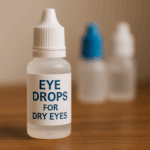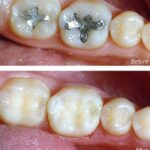You have survived 100% of your worst days—keep going, because you’re unstoppable.
At askdoctor.ai We created this content to empower you with valuable knowledge about depression symptoms, causes, diagnosis, treatment options, and real stories from those who have walked this path. Our goal is to not only inform but also inspire—offering hope, encouragement, and practical insights to help you manage and overcome depression. You are not alone. With understanding, support, and the right tools, you can navigate this journey with strength and confidence. Brighter days are ahead, and we’re here to walk alongside you.
What is Depression: How it Works
Depression, also known as major depressive disorder (MDD), is a widespread mental health condition that causes ongoing feelings of sadness, hopelessness, and a loss of interest in daily activities. It impacts around 3.5% of the global population, affecting nearly 280 million people worldwide. Research suggests that brain function irregularities, genetic vulnerability, and exposure to prolonged stress or traumatic experiences contribute to its development. Psychological models, particularly cognitive-behavioral theories, suggest that depression can stem from persistent negative thought patterns. Individuals struggling with depression may develop deeply ingrained beliefs about themselves, their circumstances, and their future, reinforcing a cycle of distressing emotions and behaviors. Effectively addressing depression requires a holistic approach that considers these interconnected factors. By understanding its underlying mechanisms, we can work toward better prevention, recovery, and support systems for those living with this condition.
Symptoms & Signs
Depression is more than just feeling sad or having a bad day—it is a serious mental health condition that affects how a person thinks, feels, and functions in daily life. It can impact relationships, work, and overall well-being, making even simple tasks feel overwhelming. Understanding depression is the first step toward managing it effectively. While the experience of depression varies from person to person, there are common signs and symptoms that can help identify when someone may be struggling. Recognizing these symptoms early can lead to timely support and treatment, offering hope and recovery to those affected by this condition.
Common Symptoms
- Persistent Sadness or Low Mood: Individuals often experience a profound sense of sadness, emptiness, or hopelessness that lasts for extended periods.
- Loss of Interest or Pleasure (Anhedonia): Activities once found enjoyable may no longer elicit interest or pleasure.
- Changes in Appetite and Weight: Depression can lead to significant weight loss or gain due to decreased or increased appetite.
- Sleep Disturbances: This includes insomnia (difficulty sleeping) or hypersomnia (excessive sleeping).
- Fatigue or Loss of Energy: A pervasive sense of tiredness can make even simple tasks feel exhausting.
- Feelings of Worthlessness or Excessive Guilt: Individuals may harbor unwarranted guilt or feel they are unworthy.
- Difficulty Concentrating: Trouble focusing, making decisions, or remembering details is common.
- Psychomotor Agitation or Retardation: This refers to noticeable restlessness or slowed movements and speech.
- Recurrent Thoughts of Death or Suicide: Individuals may have frequent thoughts about death or consider suicide.
Additional Considerations:
Depression can also manifest through physical symptoms such as headaches or digestive issues without a clear cause. Some individuals may experience irritability, especially in children and adolescents, where irritability might be more prominent than a low mood.
It’s essential to note that depression’s presentation can vary among individuals. For instance, older adults might exhibit cognitive symptoms like forgetfulness, while younger individuals may show irritability rather than sadness.
Recognizing these symptoms is vital for seeking appropriate help. If you or someone you know is experiencing these signs, consulting a healthcare professional is a crucial step toward recovery.
Causes & Reason
Depression is a complex condition with no single cause. It arises from a combination of biological, psychological, and environmental factors that influence brain function and overall mental health. While some people may develop depression due to genetic predisposition, others may experience it as a result of life events, chronic stress, or underlying health conditions. Understanding the causes of depression can help in identifying risk factors and developing effective strategies for prevention and treatment. By exploring these contributing factors, we can gain a clearer picture of how depression develops and how to better support those affected by it.
Biological Factors:
- Neurotransmitter Imbalances: Depression has been associated with disruptions in neurotransmitters such as serotonin, norepinephrine, and dopamine, which play crucial roles in mood regulation.
- Genetic Predisposition: A family history of depression can increase an individual’s risk, suggesting a hereditary component to the disorder.
Psychological Factors:
- Cognitive Patterns: Negative thought patterns and low self-esteem can contribute to the onset and persistence of depression.
Environmental Factors:
- Stressful Life Events: Experiences such as trauma, loss of a loved one, or financial difficulties can trigger depressive episodes.
- Chronic Stress: Ongoing exposure to stressful situations, including workplace stress or caregiving responsibilities, can increase vulnerability to depression.
Other Contributing Factors:
- Medical Conditions: Chronic illnesses like heart disease or diabetes are linked to higher rates of depression.
- Substance Abuse: Misuse of alcohol or drugs can lead to or exacerbate depressive symptoms.
It’s important to note that depression often results from a combination of these factors rather than a single cause. Recognizing the multifaceted nature of depression is vital for developing comprehensive treatment plans and providing appropriate support to those affected.

Diagnosis & Detection
Diagnosing depression is a crucial step in understanding and managing the condition. Since depression affects individuals differently, healthcare professionals rely on a combination of clinical evaluations, self-reported symptoms, and standardized diagnostic criteria to make an accurate assessment. Early diagnosis is essential for effective treatment and improving overall well-being. Identifying depression involves distinguishing it from temporary sadness or mood fluctuations, as well as ruling out other medical conditions that may mimic its symptoms. By understanding the diagnostic process, individuals and their loved ones can take proactive steps toward seeking help and receiving the appropriate care for recovery. Diagnosing depression involves a comprehensive evaluation by healthcare professionals to ensure accurate identification and appropriate treatment. The process typically includes clinical interviews, standardized questionnaires, and, when necessary, medical examinations to rule out other conditions.
Clinical Assessment
One of the first steps in diagnosing depression involves a detailed conversation with a doctor or mental health specialist. During this evaluation, the healthcare provider asks about symptoms such as persistent sadness, loss of interest in daily activities, changes in appetite or sleep, fatigue, feelings of worthlessness, and difficulty concentrating. If these symptoms have lasted for at least two weeks and significantly impact daily life, depression may be diagnosed.
Screening Tools
To further assess symptom severity, doctors often use standardized questionnaires. For instance, the Patient Health Questionnaire-9 (PHQ-9) helps measure how often a person experiences depressive symptoms. Similarly, the Major Depression Inventory (MDI), developed by the World Health Organization (WHO), evaluates both the presence and severity of depression based on internationally recognized criteria. These tools provide valuable insights but are not a substitute for a professional diagnosis.
Medical Examination
Because depression symptoms can sometimes overlap with other health conditions, a physical exam and lab tests may be necessary. For example, doctors often check thyroid function, as an underactive thyroid (hypothyroidism) can cause fatigue and mood changes similar to depression.
Final Diagnosis
Ultimately, for a formal diagnosis, a person must exhibit depressive symptoms consistently for at least two weeks. According to WHO, these symptoms should include either a persistently low mood or a loss of interest in activities, along with other indicators such as low energy, concentration difficulties, and sleep disturbances.
By using a combination of psychological evaluation, screening tools, and medical assessments, healthcare professionals can accurately diagnose depression and guide individuals toward effective treatment and recovery.
Treatment & Recovery
Treating depression is essential for improving mental well-being and restoring quality of life. Since depression affects individuals differently, treatment plans are often tailored to each person’s specific needs. Fortunately, various effective approaches exist, including therapy, medication, and lifestyle changes. Seeking professional help is a crucial first step, as early intervention can lead to better outcomes. Additionally, a strong support system and self-care strategies can play a significant role in recovery. By exploring the different treatment options available, individuals struggling with depression can find hope and develop a plan that works best for their journey toward healing.
Psychotherapy: A Key Component of Treatment
One of the most effective ways to manage depression is through psychotherapy, also known as talk therapy. Different therapeutic approaches help individuals address negative thought patterns and develop healthier coping mechanisms.
- Cognitive Behavioral Therapy (CBT) is one of the most widely used methods, helping individuals recognize and change unhelpful thinking and behavioral patterns. It focuses on restructuring negative thoughts and replacing them with healthier, more constructive beliefs.
- Interpersonal Therapy (IPT), on the other hand, helps individuals improve their relationships and communication skills, as social interactions often play a significant role in emotional well-being.
- Psychodynamic Therapy explores how past experiences and subconscious thoughts influence current emotions, providing deeper insight into unresolved conflicts that may contribute to depression.
Psychotherapy can be used alone or in combination with other treatments, depending on the severity of the depression and the individual’s response to therapy.
Medication for Depression
For moderate to severe cases, antidepressant medications are often prescribed to help regulate brain chemistry and improve mood.
- Selective Serotonin Reuptake Inhibitors (SSRIs), such as fluoxetine (Prozac) and sertraline (Zoloft), are commonly used because they have fewer side effects compared to older antidepressants.
- Serotonin-Norepinephrine Reuptake Inhibitors (SNRIs), like venlafaxine (Effexor) and duloxetine (Cymbalta), work by increasing levels of serotonin and norepinephrine, helping improve mood and energy levels.
- Tricyclic Antidepressants (TCAs) and Monoamine Oxidase Inhibitors (MAOIs) are older classes of antidepressants that are typically used when other medications have not been effective. However, they come with more potential side effects and dietary restrictions.
Finding the right medication can take time, as individuals may respond differently to various drugs. It is essential to work closely with a healthcare provider to monitor effectiveness and manage any side effects.
Lifestyle Modifications for Managing Depression
Alongside therapy and medication, making healthy lifestyle changes can play a significant role in managing depression and preventing relapse.
- Regular Exercise: Physical activity has been shown to release endorphins, improve mood, and reduce stress. Activities like walking, jogging, yoga, and strength training can be beneficial.
- Balanced Diet: Eating nutrient-rich foods that support brain health, such as omega-3 fatty acids, whole grains, and leafy greens, can positively impact mental well-being.
- Consistent Sleep Patterns: Poor sleep can worsen depression symptoms. Establishing a healthy sleep routine, avoiding caffeine before bed, and reducing screen time at night can improve sleep quality.
- Stress Management: Mindfulness, meditation, and relaxation techniques can help individuals cope with daily stressors and emotional challenges.
Alternative and Advanced Treatment Options
For individuals who do not respond to traditional treatments, alternative therapies may be considered.
- Electroconvulsive Therapy (ECT) is used in severe cases where other treatments have failed. It involves sending small electrical currents through the brain to trigger controlled seizures, which can help reset brain activity and alleviate depressive symptoms.
- Transcranial Magnetic Stimulation (TMS) is a non-invasive procedure that uses magnetic fields to stimulate nerve cells in the brain, particularly in areas linked to mood regulation.
- Ketamine Therapy, an emerging treatment, has shown promising results in reducing severe depressive symptoms quickly, especially in treatment-resistant cases.
Recovery and Long-Term Management
Recovery from depression is a gradual process that extends beyond symptom relief. It involves rebuilding a sense of purpose, improving relationships, and creating a fulfilling life.
- Support Systems: Having a strong support network, including family, friends, or support groups, can make a significant difference in the healing journey.
- Regular Therapy Sessions: Even after symptoms improve, ongoing therapy can help prevent relapse and provide emotional guidance.
- Medication Adherence: If prescribed medication, it is essential to continue taking it as directed and consult a doctor before making any changes.
- Self-Care and Routine: Engaging in hobbies, maintaining a structured daily routine, and setting realistic goals can contribute to long-term well-being.
Ultimately, depression is a manageable condition, and with the right understanding of symptoms, causes, treatments and ongoing support, individuals can experience meaningful recovery. Seeking help early and staying committed to a treatment plan can lead to a healthier, more fulfilling life.

Image by PublicDomainPictures from Pixabay
Real-life Success Stories
No matter where you are in your journey, remember that hope is always within reach. Life has a way of testing us, sometimes pushing us into the darkest corners of our minds, but even in those moments, you are not alone. The challenges you face today don’t define your future—they are part of a chapter, not the whole story.
Hope comes in many forms: a kind word, a small achievement, a shift in perspective, or the courage to seek help when you need it. In the depths of struggle, you may not see it, but growth is happening, even if it’s gradual. Strength is built in the moments when we choose to keep moving forward, even when the path seems unclear.
There are countless stories of individuals who have faced depression, darkness, and despair, only to rise from those depths with resilience, courage, and a renewed sense of purpose. Their stories are not just about the struggle, but also about triumph. And your story is still unfolding.
As we explore real-life success stories of overcoming depression, remember this: it’s possible. Recovery doesn’t follow a straight line, but with patience, support, and the belief that change is possible, you can move forward one step at a time. These stories are proof that it is not only okay to struggle, but also okay to heal and find peace on the other side.
So, wherever you are right now, know that you have the capacity to heal. Take one breath at a time, one moment at a time. You are stronger than you think, and brighter days are ahead. Keep going.
Rising Above Depression | Stephanie’s Story
Stephanie has struggled her entire life with her mental health, though she didn’t recognize it until she was older. When she lost her brother to suicide, her struggles only got worse. Hear her talk about her struggles with suicidal ideation and how she explains “If I had not gotten the help that I received I would not be alive today.” Stephanie feels grateful that she had the opportunity to go to Rogers and she hopes that others will reach out for help in similar ways.
Creating awareness for people has been an objective of hers both personally and professionally. She works to reduce the stigma surrounding mental health and to create safe spaces for people to talk about their mental health. Stephanie says “I think of my life as before Rogers and after Rogers.”
Stephanie initially received her inpatient depression treatment at Rogers Behavioral Health in Oconomowoc, WI. She later received additional care through the 12-week outpatient program offered in Appleton, WI. With the help she received from Rogers’ team of experts, she was able to find a path to recovery.
Suffering from depression can damage every aspect of a person’s life. Strained relationships, lost or disrupted careers, hurtful actions, and endless regret–they all represent the impact of depression. Rogers understands this and has the tools to help.
Arjun Gupta Success Story
Michael’s Story – Recovery from Depression
Michael, an attorney and professor that struggled with depression, shares what makes Skyland Trail’s approach to psychiatric treatment special.
Graeme Cowan’s Story of Overcoming Depression
Graeme Cowan, overcoming depression, depression treatments, depression stories, beating depression.
Reference:
Wikipedia about Depression
Harvard Health about Depression









Leave a Reply